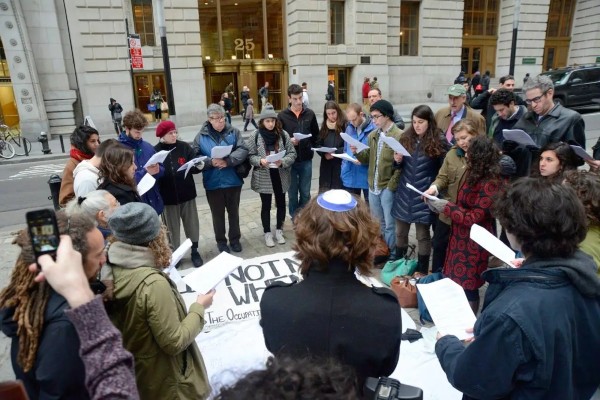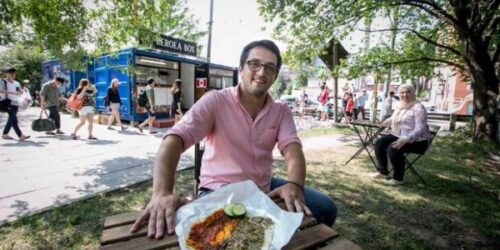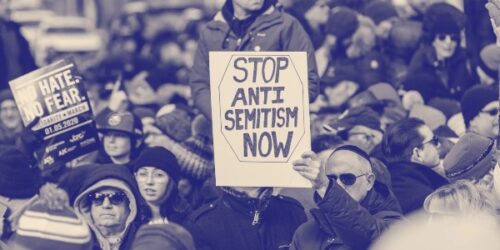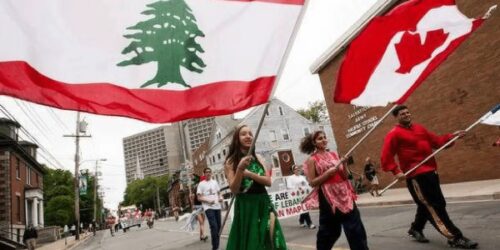Toronto-Based Palestine House Mourns Palestinian Terrorists: A Complex Intersection of Politics and Grief
In the heart of Toronto, an organization known as Palestine House has recently come under scrutiny for its involvement in a rally that mourned Palestinian terrorists. This incident shines a light on the intricate interplay between politics, cultural identity, and the mourning of lives lost in conflict. As discussions heat up surrounding the event, it’s important to delve into the nuances and sensitivities surrounding the issue.

Toronto-Based Palestine House Mourns Palestinian Terrorists: A Complex Intersection of Politics and Grief
The controversy stems from a rally attended by Khatatba, a board member and deputy chairman of Palestine House, who brought his grandson along. The rally, marked by its displays of grief and solidarity, took a strikingly controversial turn when Khatatba held a poster featuring Palestinian terrorists. This action immediately ignited debates, with opposing perspectives clashing over whether this was a legitimate act of mourning or a provocative endorsement of violence.
Unraveling the Rally: An Unexpected Mourning
The rally, which sought to express sorrow and solidarity for lives lost in the ongoing Israeli-Palestinian conflict, took an unexpected turn as images emerged of Khatatba holding a poster depicting Palestinian terrorists. This juxtaposition of mourning and political messaging has ignited conversations about the thin line between commemorating lives lost and unintentionally glorifying acts of violence.
Politics and Grief: The Complex Nexus
The Israeli-Palestinian conflict is one of the most deeply entrenched and emotionally charged disputes in modern history. The conflict’s complexities are reflected not only in its geopolitical aspects but also in the profound emotional toll it takes on individuals and communities. The act of mourning in such a context becomes entangled with political sentiments, adding layers of tension to expressions of grief.
The mourning of lives lost in a conflict as deeply rooted as the Israeli-Palestinian struggle is not merely an emotional act but one that is fraught with political implications. Expressing grief for the loss of life often extends beyond the personal sphere, taking on a broader societal and cultural context. The challenge lies in striking a balance between honoring the memory of those who have died and navigating the ideological landscape that surrounds the conflict.
Cultural Identity and Solidarity: The Role of Organizations
Organizations like Palestine House often serve as important hubs for cultural identity preservation, community support, and political activism. However, their actions can sometimes inadvertently contribute to the amplification of existing tensions. The mourning of lives lost in a conflict as contentious as the Israeli-Palestinian struggle becomes a sensitive issue, reflecting not just the actions of a single individual but the stance of the organization itself.
For organizations like Palestine House, the dual role of preserving cultural identity while advocating for political causes can be complex. While these organizations aim to provide a platform for community members to express their grief and solidarity, they must also carefully consider how their actions are interpreted by a wider audience, particularly in the context of a conflict that evokes intense emotions.
The Road Ahead: Navigating Sensitive Ground
The incident involving Toronto-based Palestine House prompts broader discussions about the intricacies of public expression, cultural preservation, and political activism. It underscores the importance of fostering open dialogues that encourage nuanced understanding and empathy, even in the face of deeply divisive issues. As societies grapple with the challenges of mourning lives lost in conflicts, it is crucial to approach these conversations with sensitivity and an openness to differing perspectives. Finding common ground in the face of complex political landscapes can help bridge gaps and encourage a more harmonious coexistence, both within communities and on the global stage.



